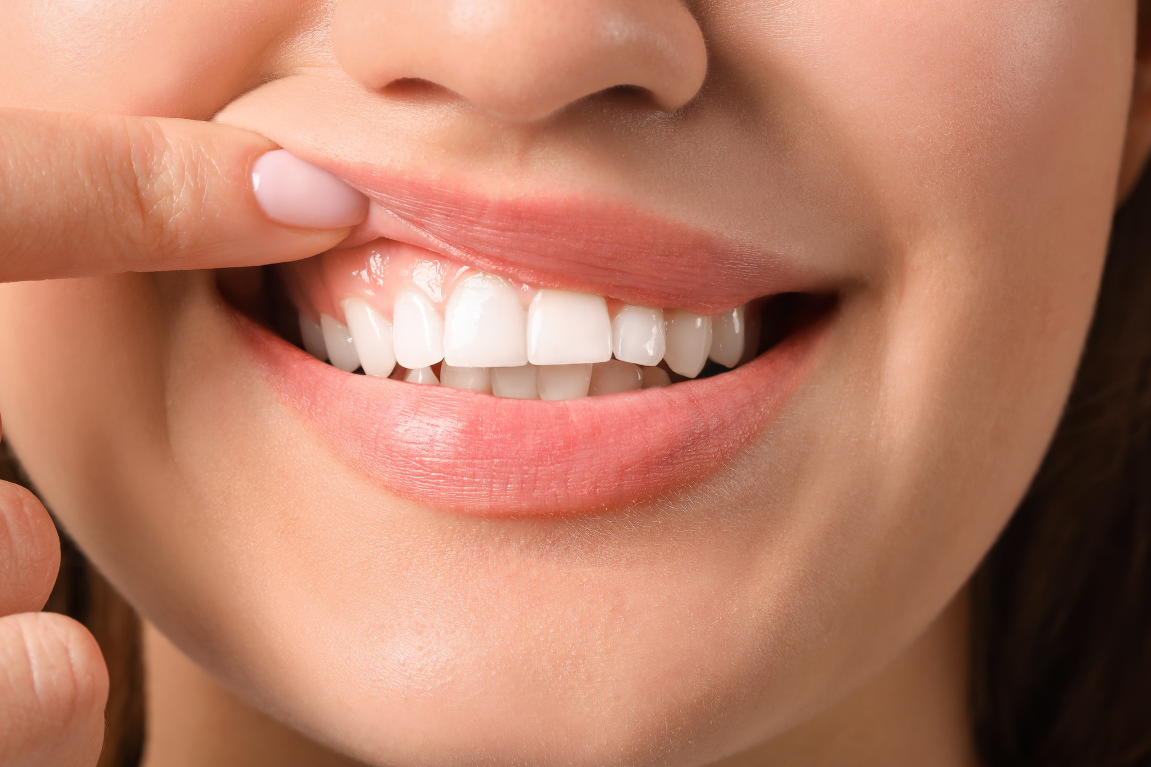Recognising and treating inflamed gums: Your guide

Do your gums often start bleeding when you brush your teeth? Are they reddish and feel irritated and swollen? Your gums could be inflamed.
Healthy gums are pink in colour and firm. Many people have inflamed gums without even realising it.
What are the causes of inflamed gums?
Inflamed gums, also known as gingivitis, can be caused by a variety of factors.
The most common cause of inflamed gums is dental plaque. This is a film-like substance consisting mainly of bacteria, but also saliva, food debris and dead cells. Does that sound disgusting to you? Stay tuned and find out how you can prevent it!
This plaque layer constantly forms on your teeth and can harden into tartar. Poor oral hygiene causes this plaque to accumulate between the teeth and gums, and the excretion of bacteria can lead to irritation of the gums and swelling.
Other causes of gingivitis include smoking and tobacco consumption, hormonal changes (e.g. during pregnancy or the menopause), vitamin C deficiency and an unhealthy diet, taking medication that weakens the immune system, such as anti-inflammatory drugs, and diseases such as diabetes or leukaemia.
What are the symptoms of inflamed gums?
The most common symptoms of inflamed gums (gingivitis) are the
redness, swelling and bleeding of the gums. This is particularly noticeable when brushing your teeth or using dental floss. The gums can become sensitive or painful and recede.
In some cases, persistent bad breath and even pus formation are the result, which makes talking to you for your counterpart an unattractive and even unpleasant experience. Dental plaque can in the long run even result in changed tooth positions. With these symptoms, the unpopular visit at the dentist, also known as smile doctor, is really advisable.
Types of periodontal disease
A distinction is made between mild inflammation of the gums (gingivitis) and severe inflammation of the gums (periodontitis).
The difference is that gingivitis only affects the gums, whereas periodontitis spreads to the entire periodontium and can also lead to permanent damage. The earlier you recognise periodontitis, the better your treatment options are.
But don’t panic: In the “Prevention” section, you can find out how
to prevent these diseases.
What helps against inflammation in the mouth?
Consequent tooth brushing and the regular use of dental floss and mouthwashes can help gingivitis to subside within a few weeks.
Using a toothbrush with soft bristles can also help to avoid further irritating the gums. If there is no improvement after a few weeks, a professional periodontitis treatment at the dentist is recommended
What can you do to prevent inflammation?
As you may already know, good oral hygiene is key to preventing inflammation of the gums and thus improving your oral health. Other options are:
- Regular and professional oral hygiene
- The use of mouthwashes
- Regular dental check-ups
- Regularly changing your toothbrush
- Healthy diet
- Abstaining from smoking and tobacco
